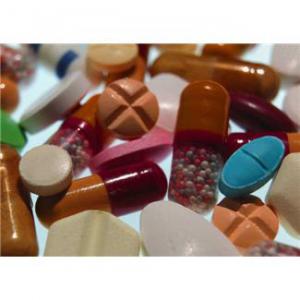Senator Bernie Sanders (I-VT) is the first Presidential candidate to announce that, if elected, he will introduce legislation that will reduce prescription medicine prices.
One leg of his three-legged stool deals with the rights of Americans to have access to safe, affordable brand-name prescription medicines from licensed, registered pharmacies in Tier One countries of whose standards of safety and efficacy meet or exceed those of the USA. The other two legs of the platform deal with abuses of the regulatory process by Pharma, acting in collusion with FDA.
We applaud Senator Sanders for his leadership. He has been a long-standing advocate of the detrimental impact upon the health care system of the US created by the comfortable relationship between Pharma and the FDA, and the predatory pricing practices of Pharma that have made the US a 'safe haven' for its charging what the traffic will bear for medicines.
It is time for an American Rx Bill of Rights that confers the right of participation in vital health decisions for Americans. Following are the first six articles of such an Rx Bill of Rights, based upon the most pertinent issues affecting prescription drug costs.
Article
One (A Basic Right to Good Health)
The
impact of millions of Americans being denied the health benefits of access to a
regimen of safe, affordable medicines because of cost is a national health
issue that has yet-to-be-recognized consequences.
(That is why the ability
of American Citizens to make health care decisions in concert with their
physicians such as the purchase of personally imported safe, affordable
prescription medicines should not be hampered by any actions by government or
private entities as a policy to restrict Americans' access to authentic
medicines. )
Article Two (An Unaffordable Medicine is Unavailable)
A
prescription medicine that is unaffordable is unavailable, thereby meeting the
'rules' of the FDA that such a medicine that is otherwise unavailable is indeed
eligible to be personally imported by an American patient,
(Arbitrary denial by
the FDA to such access is detrimental to the health of the patient by
denying him or her access to vital maintenance medicines.This is a violation of
the purpose of the FDA which is ostensibly designed to protect the health and
well-being of American citizens.)
Article
Three (Citizens as Stakeholders)
It is incumbent upon Congress that it act to ensure that ordinary American citizens whose health and finances are adversely affected by Pharma pricing practices, advocacy groups other than those of Pharma, are given a 'stakeholder'status equal to that of Pharma.
(The
relationship between the FDA, elected officials, and Pharma has led to numerous
abuses, access by Pharma to legislators and other elected officials based on
the contribution of millions of dollars, favored status for Pharma
representatives and their front groups as the primary representative at public
hearings to determine the health care policy for Federal, State and Local
Governments, thereby skewering the decision-making process.)
Article
Four (Due Process)
Americans
who purchase safe, affordable medicines from licensed, registered pharmacies in
Tier One Countries whose standards meet or exceed those of the U.S., are the
legitimate owners of their authentic medicines and are entitled to exercise
their due process rights to have their personal property free from undue and
unjustified seizure oar destruction by any governmental agency unless the
seizing authority can demonstrate via established judicial processes and to
courts that such seizures are of bogus, counterfeit or unsafe prescription
medicines.
Article
Five (Public Interest)
Americans
are significant contributors to the development of research and development
costs of new medicines through their tax dollars in support of grants to the
National Institutes of Health (NIH), and, as such, should be protected from
unfair or questionable patent protection granted to Pharma that fails to
recognize the rights of American citizens.
(Abuses in pricing, illegal business
activities, or undue influence upon policy-making by the FDA or elected
officials should result in a reduction of the patent protection afforded Pharma
to the detriment of untold numbers of Americans who must be able to pay what
Pharma believes the traffic will bear.)
Article
Six (Reciprocity)
The
FDA should extend reciprocity to other Tier One countries in the interests of
the health of American citizens.
(The majority of brand name prescription
medicines sold to Americans is manufactured at plants outside the U.S., under
FDA supervision, or at plants licensed by Pharma members to produce medicines
under a license granted by a particular company, a validation that medicines
produced outside the U.S. and sold in this country are indeed capable of being
safe. Also, the FDA has entered into agreements with regulatory agencies
in many countries to assume the task of overseeing ingredients manufacture of
ingredients for brand name medicines. Added to that is that many
countries (excluding the U.S and the FDA) have reciprocal agreements (Memorandums
of Understanding) that one country will accept the medications produced in
another country as safe and authentic.)
 “In light of 1,000 percent price increases – and more – American families are fed up with trying to afford their medications as they watch drug companies rake in record profits,” Ranking Member Cummings said.
“In light of 1,000 percent price increases – and more – American families are fed up with trying to afford their medications as they watch drug companies rake in record profits,” Ranking Member Cummings said. 





